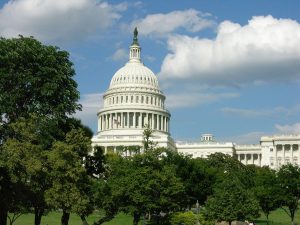Author: Steven J. Cernak
With the number of vaccinations rising and mask mandates going away, it appears that life might be heading back towards something like the “old normal.” But during the pandemic, businesses and consumers formed new habits. How many of those new actions will continue post-pandemic and how will those changed processes affect antitrust practice? With all the caveats about predicting the future, here is one set of opinions.
Joint Ventures
At the beginning of the pandemic, many law firms chose to remind their readers that antitrust laws still applied and, for instance, price-fixing was still per se illegal. We chose to remind our readers that pro-competitive joint ventures of various sorts have always been fine under the antitrust laws and might prove useful to businesses struggling to survive a pandemic and lockdowns. The DOJ and FTC also reminded everyone that antitrust laws still applied but, to their credit, also pointed to permissible joint ventures. They also streamlined their review processes for parties wanting an advisory opinion on joint efforts related to the pandemic.
Obviously, it is too early to tell if there has been any change in the number of price-fixing and similar conspiracies consummated during the pandemic; however, it does appear that many businesses did use joint ventures to improve efficiency. As of this writing, at least six joint efforts took advantage of DOJ’s streamlined Business Review Letter processes to obtain greater antitrust certainty about their joint efforts. Also, over 160 notices under the National Cooperative Research and Production Act were filed with DOJ and the FTC in the past twelve months. While many of those notices were merely updates from a much smaller number of joint ventures to disclose changes in membership of the consortium, they do provide some evidence that many companies remembered the pro-competitive business benefits of some collaborations of competitors. As businesses look for ways to improve efficiencies in uncertain times, look for these collaborations to continue.
Pricing
Pricing at all levels of distribution sends key signals to consumers, distributors, and manufacturers and so is often an important antitrust topic. As we explained early in the pandemic, however, price gouging is not a violation of the federal antitrust laws. State price gouging laws and contractual provisions were used early in the pandemic to protect consumers from high prices and manufacturers from blame for high prices by authorized and other distributors. Fears of price gouging seemed to fade early in the pandemic and, other than isolated incidents caused by temporary shortages, seem unlikely to return; instead, the pricing issue currently top of mind is general price inflation, a topic not covered by antitrust laws.
Supply Chain Issues—From Just in Time to Just in Case?
At the beginning of the pandemic, it was shortages of toilet paper and other paper products. Here near the end, it is a shortage of computer chips for motor vehicles (and other products), chicken, and other products. Both the products and the causes of the shortages seem to have changed during the pandemic. The toilet paper shortage was caused by a sudden and extreme temporary increase in demand; the more recent ones are caused by various supply chain and labor issues resulting in multiple and long-term dislocations.
At bottom, many of these dislocations stem from companies trying to implement their interpretations of the Toyota Production System, particularly a just-in-time supply chain. Such supply chain management reduces costs and inefficiencies by eliminating buffer stocks and working closely with a smaller network of suppliers. In normal times, such systems reduce costs; however, they can be fragile and unable to quickly adjust to exogenous supply shocks, like natural disasters or unexpected bankruptcies. All such systems are based on assumptions that such shocks will not take place or that sufficient additional supply can be quickly found and substituted. When those assumptions turn out to be wrong, businesses can suffer.
Will living through these trying times cause businesses to think more about “just-in-case” supply? Will manufacturers be more likely to object on antitrust grounds to supplier consolidation that leaves one fewer potential, even if not current, supplier? Will “5-to-4” mergers now be problematic? Will the FTC object to a hospital merger that could reduce supply unlikely to be used except in a pandemic? If businesses, economists, and enforcers modify their thinking on “efficiencies”, merger review results could be different at least on the margins.
Fewer Smoke-Filled Rooms But Not Necessarily Less Price Fixing
Business travel seems to be coming back, though apparently more slowly than personal travel. As companies and their employees have become more comfortable interacting virtually, it seems unlikely that travel to trade association and other meetings of competitors will soon, if ever, get back to prior levels. If so, there would be fewer opportunities for competitors to physically meet in typical “smoke-filled rooms” or hotel bars or other places where anti-competitive agreements have been hatched in the past. But that does not mean fewer opportunities to collude—it just means the conspirators will use Zoom, WhatsApp or many other communication and messaging methods. Fortunately, DOJ has understood these trends for years, as detailed in the links here. For counselors and antitrust compliance specialists, we might need to update our training examples.
Zoom—The Next Google?
Remember when you first discovered Google? Not only how well the search engine worked but how clean the site was, except when it included cute drawings and links like the Santa Tracker on Christmas Eve? Might be hard to remember now but the company whose motto was “Don’t be evil” seemed to be universally popular. Now? Well, it still remains at least respected and used by a lot of people, but it has also gathered enemies across the political spectrum and around the globe, often for alleged antitrust violations.
 The Antitrust Attorney Blog
The Antitrust Attorney Blog












